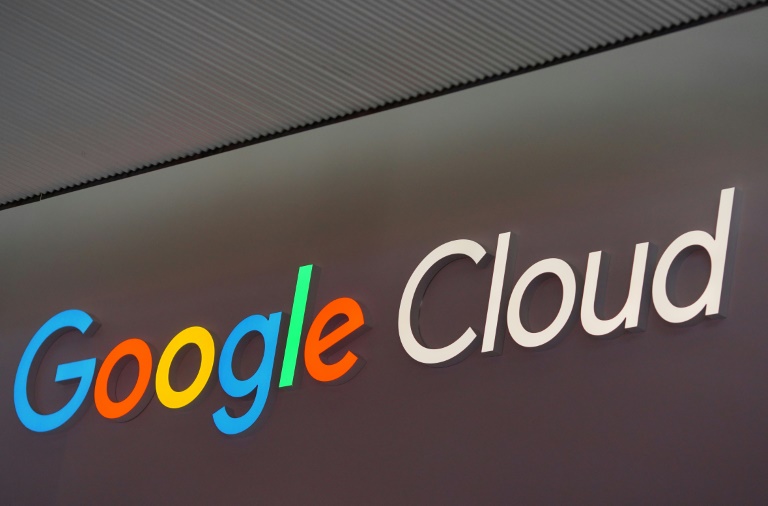Science
Anthropic Secures Billion-Dollar AI Chip Deal with Google

Artificial intelligence firm Anthropic has announced a significant expansion of its collaboration with Google Cloud, entering into a deal valued at tens of billions of dollars. This partnership, revealed on Thursday, involves Anthropic purchasing up to one million custom-designed Tensor Processing Units (TPUs), specialized chips developed by Google to enhance its cloud computing capabilities. The San Francisco-based startup aims to harness this increased computing power to meet the soaring demand for its Claude AI models by the end of 2026.
The deal is set to deliver more than a gigawatt of new computing capacity, allowing Anthropic to scale its operations significantly. Chief Financial Officer Krishna Rao emphasized the necessity of this expansion in light of the “exponentially growing demand” for AI solutions. Currently, Anthropic serves over 300,000 business customers, indicating a robust market presence despite being newer to the field.
Founded in early 2021 by former staff from OpenAI, Anthropic emerged with a focus on responsible AI development, seeking to mitigate potential risks associated with AI technologies. Backed by Amazon, the company quickly rose to prominence in the generative AI sector, particularly following the launch of ChatGPT by OpenAI in November 2022. Though it trails OpenAI in user base and recognition, Anthropic has been recognized as a leader in generative AI for programming tasks.
Strategic Moves and Growing Competition
The partnership with Google aligns with the tech giant’s ongoing investment in AI, as it competes with other major players such as Microsoft and Nvidia for dominance in the field. Thomas Kurian, chief of Google Cloud, noted that Anthropic’s decision to expand its use of TPUs highlights their strong performance and efficiency, which the teams have experienced over the years. Google continues to innovate in this area, aiming to increase the capabilities of its TPUs to support demand from firms like Anthropic.
In a further expansion of its operations, Anthropic recently launched its latest generative AI model, Claude Sonnet 4.5. The company claims this model is the best in the world for computer programming and is highly advanced in enabling AI systems to operate on computers similarly to human users.
As part of its growth strategy, Anthropic plans to open an office in India next year. This move comes as global AI firms are eager to tap into India’s expanding market, projected to have over 900 million internet users by the end of 2023. The demand for AI tools and solutions is rapidly increasing, driven by adoption among both businesses and individual users.
With a valuation of approximately $183 billion, Anthropic is positioning itself competitively against industry giants. In contrast, OpenAI’s valuation reportedly surged to $500 billion following a recent private share sale, underscoring the intense competition and investment in the AI sector.
As both companies continue to innovate, the landscape of artificial intelligence is evolving rapidly, influencing a wide range of industries and shaping the future of technology.
-

 Science3 months ago
Science3 months agoToyoake City Proposes Daily Two-Hour Smartphone Use Limit
-

 Top Stories3 months ago
Top Stories3 months agoPedestrian Fatally Injured in Esquimalt Collision on August 14
-

 Health3 months ago
Health3 months agoB.C. Review Reveals Urgent Need for Rare-Disease Drug Reforms
-

 Technology3 months ago
Technology3 months agoDark Adventure Game “Bye Sweet Carole” Set for October Release
-

 World3 months ago
World3 months agoJimmy Lai’s Defense Challenges Charges Under National Security Law
-

 Lifestyle3 months ago
Lifestyle3 months agoVictoria’s Pop-Up Shop Shines Light on B.C.’s Wolf Cull
-

 Technology3 months ago
Technology3 months agoKonami Revives Iconic Metal Gear Solid Delta Ahead of Release
-

 Technology3 months ago
Technology3 months agoApple Expands Self-Service Repair Program to Canada
-

 Technology3 months ago
Technology3 months agoSnapmaker U1 Color 3D Printer Redefines Speed and Sustainability
-

 Technology3 months ago
Technology3 months agoAION Folding Knife: Redefining EDC Design with Premium Materials
-

 Business3 months ago
Business3 months agoGordon Murray Automotive Unveils S1 LM and Le Mans GTR at Monterey
-

 Technology3 months ago
Technology3 months agoSolve Today’s Wordle Challenge: Hints and Answer for August 19









